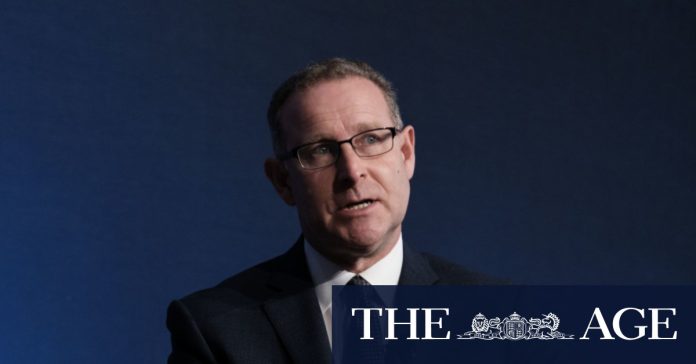[ad_1]
Prime Minister Anthony Albanese told a COSBOA summit earlier this year that small businesses will “again be front and centre of our thinking” in Tuesday’s federal budget, a view that was received with some scepticism from business leaders and other politicians.

Prime Minister Anthony Albanese told the COSBOA summit that small businesses would be front and centre in his upcoming budget.Credit: Peter Rae
A KPMG survey of mid-market businesses saw 47 per cent of business leaders vote major tax reform as the most effective measure to boost growth, followed by more investment in skills and training to get around the talent shortage.
KPMG enterprise tax partner Clive Bird said the government should consider relying less on income tax by lowering tax brackets and leaning more on consumption by raising GST.
“That would then create a broader tax base, it would bring retirees back into the tax base and take some of the pressure off Australia’s income earners,” Bird said. “There’s a strong view among the mid-market that that would be an appropriate response that would help our economy.”
Meanwhile, consumers’ reluctance to spend as a result of cost-of-living pressures has led to the highest rate of insolvencies on record. In March 1136 businesses failed, up from 555 in January and 968 in February, according to data from ASIC.
Credit ratings agency CreditorWatch chief economist Anneke Thompson believes we’re yet to see the worst.
“If we were to have some interest rate relief on the horizon, maybe in the fourth quarter, insolvencies might peak in the third [quarter]. But it’s look like we won’t see cuts to the cash rate until early next year, so that will just drag things on in terms of insolvencies,” Thompson said.
A key indicator of further insolvencies to come is the surge in trade payment defaults, which is up 22.6 per cent compared to last year, meaning businesses are falling behind on paying outstanding invoices.
“We know when businesses are struggling to pay other businesses on time that they’re in distress, and that insolvency on that business is at a much higher probability.”
Loading
Construction, professional consulting, and hospitality are the hardest-hit by insolvencies amid soaring costs for building and diminishing margins for the food and beverage industry as ingredients, electricity, wages and rent costs rise.
Retail sales in the food and beverage sector flatlined last August, Thompson said. “That was the time when Australians decided they had to change their eating habits and couldn’t go out to restaurants as much as they’d like.”
“[Businesses have] got pricing pressures, but also demand-side pressures as well.”
But Thompson isn’t sure how far the flagged tax cuts will go in boosting discretionary spend.
“I think a lot will just put that additional cash towards their higher rent or mortgage repayments or utilities bills, or something like that. I think it will take a little bit more than the Stage 3 tax cuts coming up before consumers really start spending.”
The Business Briefing newsletter delivers major stories, exclusive coverage and expert opinion. Sign up to get it every weekday morning.
[ad_2]
Source link


